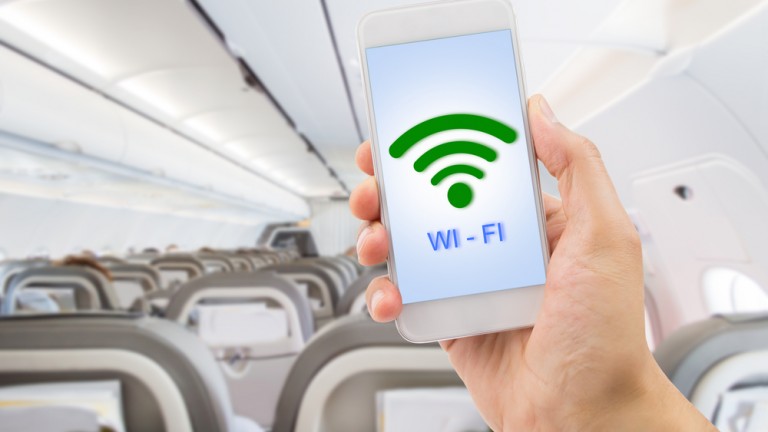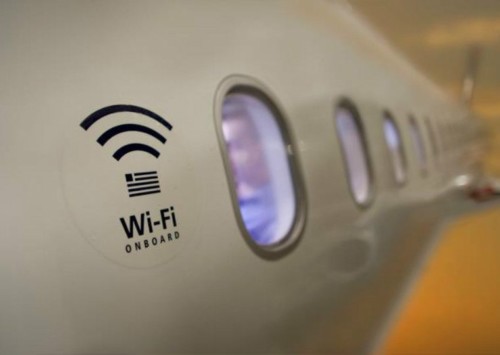Indian airlines welcome Telecom Commission’s nod for in-flight WiFi, voice services
Department of Telecommunications, Government of India has approved of a majority of TRAI’s recommendations on ‘In-Flight Connectivity’, with major Indian airlines welcoming the move.
Major airlines, including Air India and Vistara, recently welcomed the Telecom Commission’s nod for use of WiFi and voice services in-flight, with Civil Aviation Minister Suresh Prabhu saying he will ensure “earliest implementation” of the proposal. When the decision comes into effect roughly in three to four months’ time, passengers can use mobile phones for both voice and data services in the Indian airspace in domestic and International flights.
“We welcome the decision as it will mean more convenience to air travellers. We will study the recommendations in details and in due course determine the economics of offering on domestic and international route,” Vistara, which is gearing up for international operations, said in a statement, welcoming the development.
Telecom Commission today approved TRAI’s recommendations for offering voice & data services in flights within Indian airspace . @Secretary_DoT briefed media persons after meeting of Telecom Commission held today. 1/5 @TRAI pic.twitter.com/ml5qRtR2r0
— DoT India (@DoT_India) May 1, 2018
TRAI issued its recommendations on ‘In-Flight Connectivity’ on January 18, 2018. The decision paved the way for airlines to offer these services once they meet certain security norms. The Department of Telecommunications (DoT) through its letter dated August 10, 2017, had communicated that there is a proposal to introduce In-Flight Connectivity (IFC) for voice, data and video services over Indian airspace for domestic, international and overflying flights in Indian Air Space. DoT had also requested TRAI to furnish its recommendations on licensing terms and conditions for the provision of IFC for voice, data and video services and associated issues such as entry fee, license fee, and spectrum-related issues including usage charges and method of allocation and other conditions.
Approval for Voice & Data services in Indian airspace has been granted by the @TRAI. We are a step closer for fliers to access & use mobile services in-flight. Enhancing passenger experience in the aviation ecosystem has always been at the forefront for @MoCA_GoI. @DoT_India
— Jayant Sinha (@jayantsinha) May 1, 2018
The major take away from the decision is access to net connectivity and Internet access that can be provided once the aircraft is ready for take-off. “Providing passenger amenities have been the endeavour of the Modi government. We are constantly upgrading our services. This (decision) will go a long way in making sure people will be using the flying time more productively and efficiently,” the Civil Aviation minister, Suresh Prabhu stated.
“This move will also help so many hours not being wasted which would be fruitfully and gainfully,” he added, describing the move as “exciting times ahead in Indian skies”.
According to Amber Dubey, partner and India head of aerospace and defence at global consultancy KPMG, passengers may not be averse to paying INR 200-300 for a 2-3 hour flight and it could be more for international flights.
“Premium and corporate passengers may get the service for free,” Dubey told news agency PTI. Dubey said in 12-24 months, the WiFi service may become completely free like it is in hotels. For the airlines, it may provide alternate revenue opportunity to airlines through advertisements and fee from online transactions.
“Overall, it’s a great move albeit a bit late,” he said. The Telecom Commission’s approval is a win-win situation both for the airline and the travellers in general and we welcome it, said an Air India spokesperson, stating that they are analysing the announcement made in detail before commenting further on the issue.
Both IndiGo and SpiceJet said they are also studying the matter in detail before making any comments. Dubey, however, felt that airlines would find it difficult to ground the aircraft for retrofitting with necessary equipment. This may be easier to implement through new aircraft deliveries.












